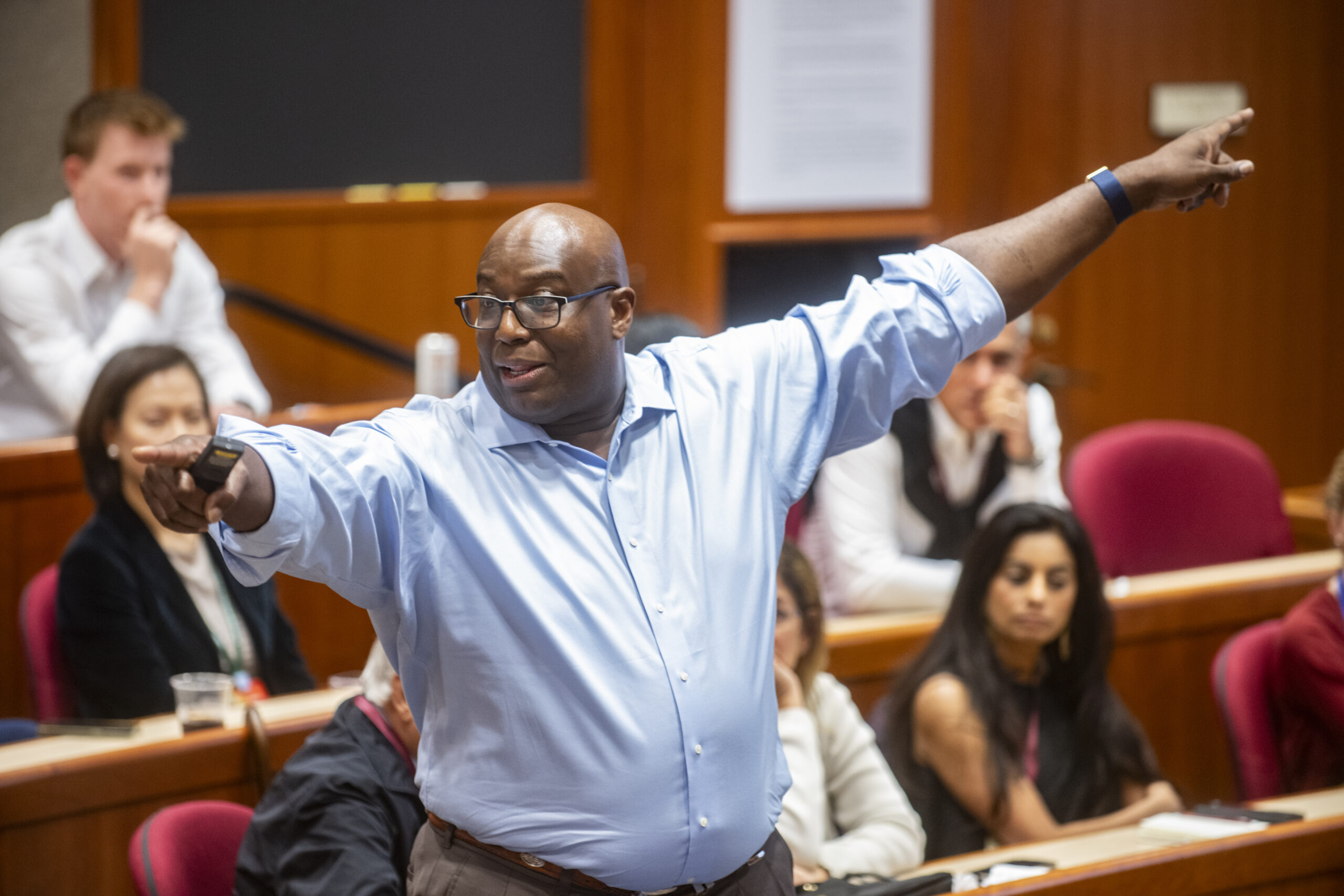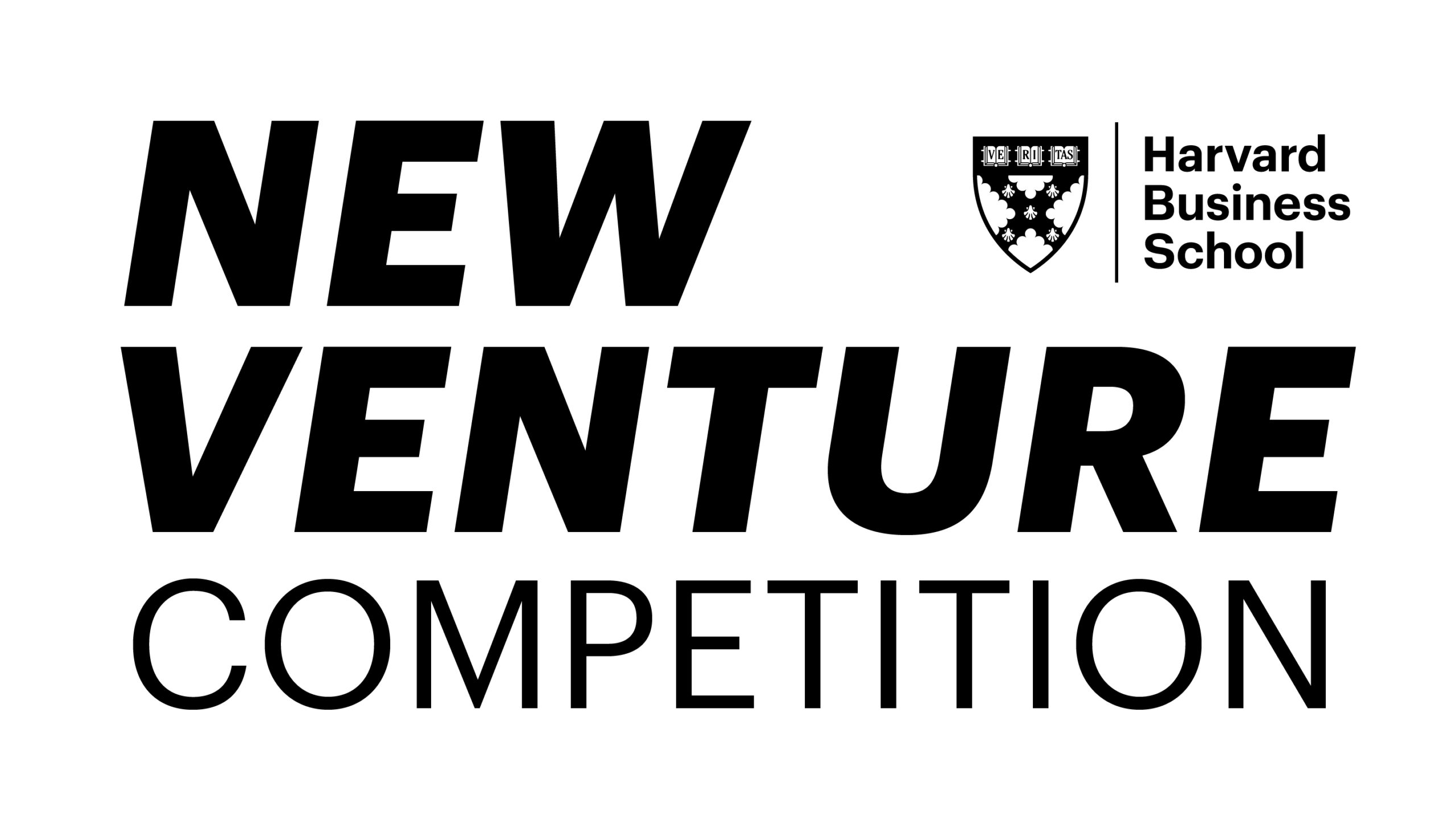In February 2024, the HBS New Venture Competition received 31 entries to the Social Enterprise Track, from student teams across Harvard University. Sixteen semifinalists presented in early March to expert judges from the field—a mix of philanthropists, impact investors, capacity building organizations, and social entrepreneurs—who selected our four finalists based on the strength of their concepts and execution of their plans.
Learn more about each finalist team below, and join us on March 28 for our HBS New Venture Competition Finale! If you are outside of the Boston area, you can still join us virtually through our livestream on the NVC website.
SeaCycle
Pioneering sustainable biopolymer production.
Hande Ilhan, MBA 2025
Jakob Spiess, MBA 2025
- How did you come up with your idea?
We came up with our idea by recognizing the urgent problem of food waste and its environmental impact. Extensive research, including academic literature, guided us to areas where we could make a substantial impact while ensuring profitability. We honed in on chitosan, a pivotal chemical in industries like chemical, pharmaceutical, and cosmetics, known for its versatility and wide-ranging applications. This focus drives us to innovate solutions that not only address food waste but also deliver value to businesses and communities.
- What was the "aha" moment for your start-up?
Our "aha" moment came when we realized the environmental impact of current chitosan production methods. We saw an opportunity to produce chitosan in a zero-waste process, which sparked the idea of making environmentally friendly production also cost-effective. This led us to test our hypothesis and explore ways to produce chitosan sustainably and affordably.
- Why the HBS New Venture Competition?
Participating in the HBS New Venture Competition is an ideal fit for SeaCycle. As a startup focused on sustainable chitosan production, the Social Enterprise Track aligns perfectly with our mission to create a positive environmental impact while ensuring economic viability. The competition provides us with a supportive platform to refine our business model, receive expert feedback, and collaborate with like-minded individuals. Winning a non-dilutive prize would significantly accelerate our efforts to develop a zero-waste chitosan production process. The competition's emphasis on social entrepreneurship and innovation resonates with SeaCycle's core values, making it a compelling opportunity for us to further our mission. Additionally, the Finale event at Klarman Auditorium offers us the exciting prospect of sharing our ideas with friends and section mates, further enhancing our enthusiasm for the competition.
- In one word, what does entrepreneurship mean to you?
Rejuvenating
Solara
Providing an on-demand solar irrigation service to Indian farmers, increasing their access to affordable, reliable, and clean irrigation.
Rea Savla, MBA 2024
Vishesh Mehta
- How did you come up with your idea?
Coming from agricultural and Indian rural development backgrounds, we were hyper focused on one problem from the start: how do we empower the hundreds of millions of socio-economically vulnerable Indian farmers that have historically been left out of the country’s growth story? Our obsession with this problem led us on a year-long, grassroots journey across 25 villages/cities and 4 states, reaching out to and learning from the top scientists, policy makers, bureaucrats, CEOs, and most importantly, hundreds and hundreds of farmers first-hand. Over 450+ interviews, three things became clear to us: (1) access to irrigation was the top barrier to farmer income growth, (2) cracking commercialization of solar irrigation could democratize access to irrigation at-large, and (3) building a shared economy of productive assets would dramatically accelerate rural growth. These learnings inspired us to build Solara!
- What was the "aha" moment for your start-up?
Most of India’s 100M marginal farmers operate in off-grid regions, where solar panels would remain idle for over 300 days of the year due to the lack of infrastructure to sell surplus power back to the grid. We hypothesized that by creating portable, shared solar irrigation kits, farmers could stagger their irrigation, ensuring year-round panel use and an investment breakeven in just one year instead of six. We set out to find clusters of 10 farmers within a 4km radius who would want to share solar irrigation kits, and during our field demos were struck with our ‘aha’ moment - we found over 1000 prospective farmers at each of our five target 4km regions expressing a strong interest and criteria fit for our sharing model. Further research confirmed similar demand clusters, validating our scalable sharing model and marketplace potential.
- Why the HBS New Venture Competition?
The HBS New Venture Competition is critical for social enterprises like ours that are just starting up - it’s provided us with a safe and nurturing environment to gain feedback from leading experts in the social entrepreneurship world and potentially raise grant money that will be critical for our proof of concept. This type of access and resources are often really difficult for founders to avail until much later in their startup journey even though they are exactly what is required to bring new ventures to market. We’re grateful to the Social Enterprise Initiative and NVC team for making this experience possible for us!
- In one word, what does entrepreneurship mean to you?
Problem-solving
TestParty
Comprehensive platform to help companies get and stay ADA or EAA compliant based on the Web Content Accessibility Guidelines.
Michael Bervell, MBA 2024
Jason Tan
- How did you come up with your idea?
The founders of TestParty are Michael Bervell and Jason Tan. Bervell first experienced products being non-accessible in sixth grade when his Xbox Kinect, a Christmas gift, did not recognize his darker black skin under dim lighting conditions. He later consulted for Google and for the United Nations working on their accessibility strategies. Tan worked at Twitch (an Amazon company) and experienced a digital accessibility lawsuit. He fixed tickets, communicated with legal, and realized how little tooling existed. Like Twitch, thousands of companies get sued for digital ADA compliance annually, and engineers have no idea how to fix issues. In the last 5 years alone, over $370 million has been paid out in digital ADA settlements and ADA damages. They came up with the idea while discussing how AI was changing software engineering and software testing while in the midst of Twitch's accessibility lawsuit.
- What was the "aha" moment for your start-up?
There are tons of good ideas, but the "aha" moment for this startup came when Bervell sent out 1,000 emails to different accessibility leaders based on their LinkedIn bios and job titles. Within 24 hours, they had meetings on the calendar with Starbucks, McDonalds, Delta, and Schneider Electric. Less than 6 months after that, and all from his personal Gmail account, Bervell closed nearly $100k in revenue. In addition to this natural pull from the market, the team realized that starting in June 2025 as a result of the European Accessibility Act, compliance will be mandatory for any company servicing EU citizens, no matter where in the world they are.
- Why the HBS New Venture Competition?
TestParty is a uniquely HBS startup. It was born in HBS dorms, incubated during the Rock summer fellowship (with HBS funding), our first mentors were HBS alumni, and even our investors came through the iLab network. It's only fitting to capstone this social impact project by sharing the business plan and it's progress through the HBS New Venture Competition. The team is dedicated to working on TestParty full-time and the HBS NVC will catalyze both this and the future of making the Internet more accessible.
- In one word, what does entrepreneurship mean to you?
Betterment
Trans Health HQ
A tool built by the trans community that addresses clinicians’ barriers around learning and advocacy.
Ivan Hsiao, MPH 2024
- How did you come up with your idea?
I’ve had the privilege of hearing countless stories of incredible resilience from the transgender community, whether through conversations with friends, or people I crossed paths with while volunteering at the SF LGBT Center, that speak to the sheer effort it takes to obtain gender-affirming care in the face of structural barriers such as homelessness and violence. For those able to make it into a doctor’s office, many often did not receive necessary care without significant additional effort, to the detriment of our physical and mental health. It was within the context of this unacceptable reality that I spoke to hundreds of clinicians about barriers preventing them from providing gender-affirming care, and brainstormed with trans patients and clinicians around how to close these gaps in knowledge-sharing and capacity-building, so that we can raise the bar for patient-centric care, and incentivize the broader base of clinicians to meet it. Trans Health HQ will always be a work-in-progress, as we continue learning about the diverse and unique needs and perspectives of the trans population and incorporating them into our solution.
- What was the "aha" moment for your start-up?
At the National Trans Health Summit hosted by UCSF last Spring, clinicians sat on the floor outside the largest conference room the organizers found to host a repeat session on gender affirming primary care, which still could not contain all of the clinicians who wanted to attend. As I settled in next to the door, I thought of the conversations I had with the multiple providers who apologetically informed me that they were not comfortable starting me on testosterone hormone replacement therapy because of their limited clinical expertise, and similar experiences I heard from friends at the SF LGBT Center who had been refused care from well-intentioned clinicians in the Bay Area. It was with the doctor from Tennessee and nurse from Alabama next to me that I had my first conversations about possible barriers to providing gender-affirming care to trans patients in their general practices, and in those moments when I realized there could be a well-scoped, solvable problem that I could contribute to fixing.
- Why the HBS New Venture Competition?
My goal during the MPH was to seek as much advice as I could from the broader Harvard ecosystem, knowing that gaining a variety of perspectives across sectors is a best practice for building successful solutions. Being a public health student at HSPH, Cheng fellow at HKS and a HLEP beneficiary at HLS, Trans Health HQ received regular feedback from a health equity, policy, and legal standpoint, but we needed greater fluency in representing the value of our work to financially minded stakeholders to become a sustainable social enterprise. I pitched at the NVC kick off last semester, and was astonished by the number of people that came up to me afterwards and offered their thought partnership, network, and encouragement. Throughout the selection process and semi-finals, the SEI team, judges, and students have helped us pressure-test our solution and identify possible collaborators. Participating in the NVC helps Trans Health HQ move closer to our objective of improving healthcare outcomes for trans patients at scale.
- In one word, what does entrepreneurship mean to you?
Transformation

